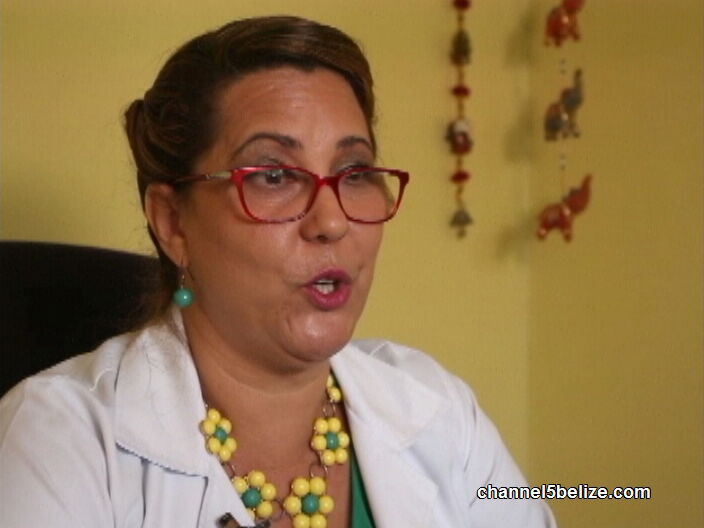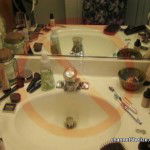Hygienic Practices for Makeup Users on Healthy Living
Apr 30, 2015
Okay Ladies, it’s time to pull out those cosmetic bags and look over the products on your night stand. If you’ve had skin problems on your face; the culprit may very well be one of your favorite beauty products. Tonight on Healthy Living we discuss some important hygiene practices for your face and make up. Marleni Cuellar, Reporting
Practicing good makeup hygiene is a lot more important that people tend to realize. That’s because these products come in contact with your skin day after day and collect a whole lot of bacteria; and, as dermatologist Dr. Ines Moguel explains, may be the reason for your skin problems. INES MENDEZ MOGUEL
Dr. Ines Mendez Moguel

“Normally make up have preservatives and chemicals that make the makeup stable and make it able to fight the bacteria; however in normal makeup, after manufacture there is always bacteria, when you open it, airborne bacteria will be able to enter the make up & the quantity will not be significant but there is always bacteria present and we become infected when you have cut or abrasion on the skin or when the immune system is not strong enough to fight the infection.” Aside from acne breakouts, eye infections like conjunctivitis, what we call “pink eye” and cold sores – which is actually a form of herpes – are two common infections that can be easily spread by makeup.

“For example is you have a cold sore and you sue a pad to apply powder you can spread the cold sore from the corner of your mouth to anywhere else; but the you put that pad on your powder and you seal it, the bacteria, the fungus or the infection that you may have will infect the powder, when you close that lid it will be able to multiply. So you lend that to your friend or your sister they will be able to get the infections as well. So any bacteria, you can put on your face, it can be transferred to your face or to another.
Or you can put it back on your skin, for example if you had pink eye and you put on eye liner on your lower eye lid before you realize that you had the infection. So you past through the pink eye, you stop using make up for a couple of days, you pass the infection and then you reuse that pencil, you will get the infection back on the same or the other eye. So there are simple step that we can do to stop spreading the infection from one to another but also to prevent the make up from being infected.” So, rule number one, there is no “sharing is caring” when it comes to cosmetic products. Being selfish in this case may spare your from unwarranted exposure to viruses like herpes simplex. The second is to get rid of old make up – and by old we mean a few months old.

“When you buy products you have to know when you buy the make up and how long the life span is safe. So for example we know that the culprit for the most ofetn infection come from mascara. So mascare should be discarded after three months. That was study done by the university of Kansas which proved that after three months mascara is not good. Eye liners, eye pencils those last a little bit longer so you can use them for a year. These are based on recommendations based on studies done by various universities. The powder, the liquid makeup, concealer. They have a little bit longer you can use if for a year or two; the powder for a year or 6 months depending on some studies.” Whenever in doubt; throw it out. If the makeup smells or looks strange then don’t take any chances. Storage is also important – make up should be keep in a cool and dry place. Which mean the bathroom is not ideal and definitely keep it out of sunlight. Washing make up brushes will also reduce the spread of bacteria and Dr. Mogouel advises that parents teach children from they’re young to not share cosmetic products.

“There are a lot of disease we can get and we can start with our kids, there are things that are personal, do you share your toothbrush? No. So you don’t share your lip gloss or your makeup in general.”


